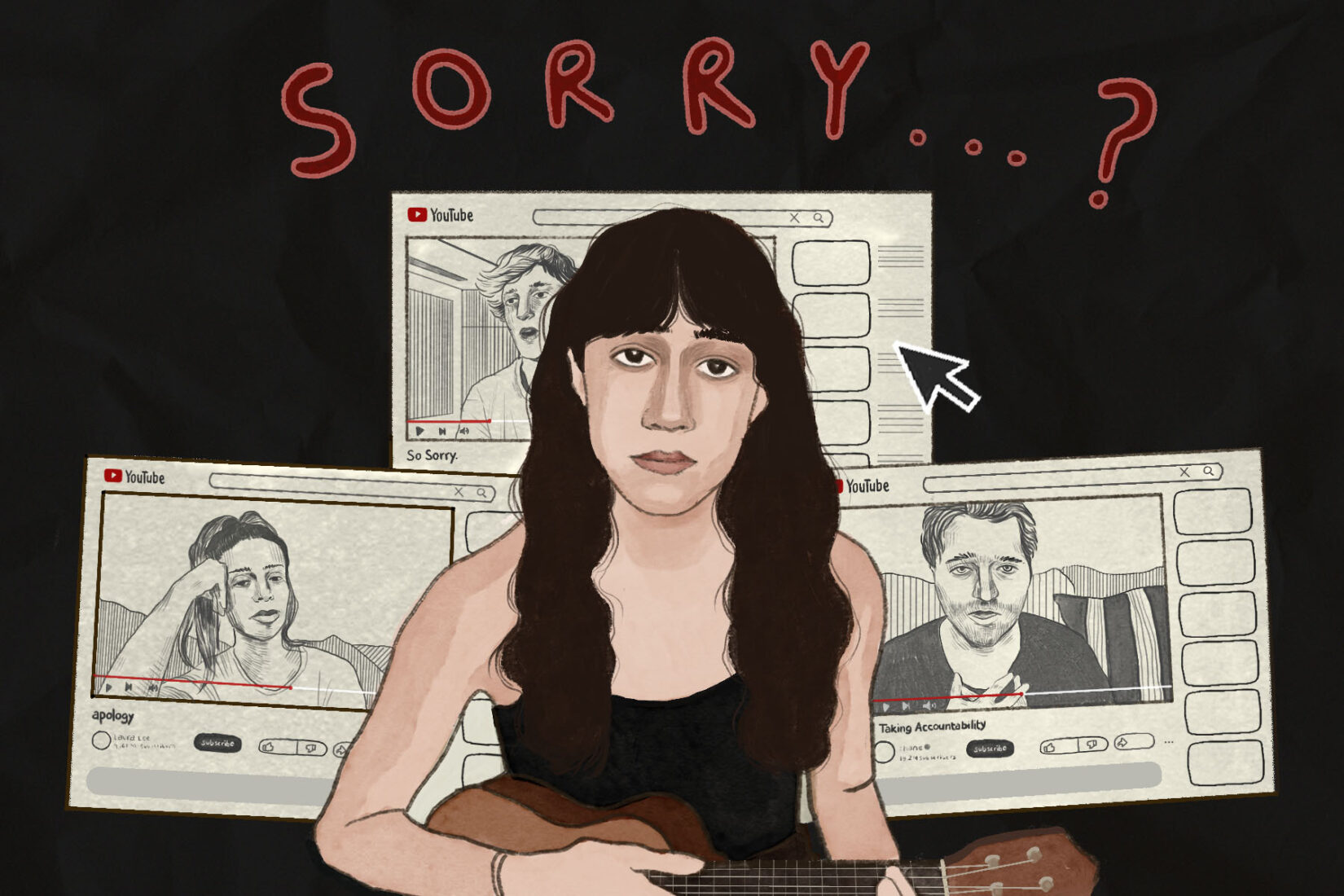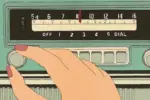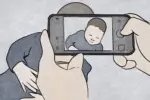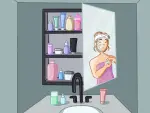Apology videos on YouTube have become their own genre, with tropes and stylistic through-lines linking the platform’s most polarizing performers. Anyone familiar with the site is probably used to a couple of them: a short and unnecessarily vague title, uncomfortable amounts of eye contact and mile-long lists of excuses to name a few. And nearly every time someone releases one of these videos to address allegations of racism, sexism, grooming or any of the other countless controversies content creators find themselves in, it only serves to make the situation worse.
There’s no clearer example of that fact than the Colleen Ballinger situation which started a few weeks ago. The YouTuber gained fame in the late 2000s by making kids videos as a character called Miranda Sings, recognizable for her smudged lipstick and purposefully bad singing. While she’s continued to make videos up to the present day under her real name, the content she makes is still targeted towards children, and she has included child actors in her various productions.
Over the past couple years, several of those former child actors have come forward to accuse Ballinger of inappropriate and somewhat predatory behavior. Most recently, she was accused of grooming underage fans and sending inappropriate messages to them. After evidence came out to support the claims, Ballinger decided to make a video addressing them. Her video meets all of the criteria typical of this genre, but with an interesting twist. Ballinger decided to sing throughout the video while playing the ukelele, a choice even Miranda Sings would deem tone-deaf.
And while Ballinger’s video wasn’t technically an apology, since she was actually using the video to justify her behavior, it still falls into this strange new genre occupied by the likes of Logan Paul and David Dobrik. Much like in the cases of these two internet personalities, Ballinger has been receiving enormous backlash for the video she released. And while the internet has been tearing Ballinger’s video apart and losing their minds over its absurdity, the reactions to this “apology video” raise some important ethical questions about how audiences react to celebrity controversy.
Because Ballinger is no stranger to scandal. She’s been at the center of multiple problematic incidents across the course of her YouTube career, from pretending to come out as gay to sending underwear to her fans. She knows how the current allegations against her look, and she knew how her video justifying her actions would come off. As insane as her ukelele-fueled musical number seems, she probably made it insane on purpose, specifically to get people talking about it rather than the actual crimes she committed.
And at least in terms of the video garnering attention, it’s worked very well. Not only has her video racked up more than 10 million views (for context, her other most recent videos reached around the 250,000 mark), but the number of videos and articles that have come out about the situation just within the past few weeks is staggering.
But even if she’s getting views, her channels must be suffering from this backlash, right? Kind of, not as much as most people would suspect. Yes, the channel she released the video on, “Colleen Vlogs,” has lost a little over 100,000 subscribers, as has her main channel, “Colleen Ballinger,” but they are still both sitting at around 3.5 and 8.5 million subscribers respectively. Both of her channels are still monetized, as well, and both have seen a huge rise in viewership over the past month.
Because despite what Ballinger did, and despite her wild response to the allegations, her fan base isn’t going to go anywhere. Most of them are young children, who can’t really be expected to critically analyze creators they like, let alone care about their behavior outside of the content they make.
Conversely, many people who weren’t engaged with Ballinger’s content or outright dislike her are now talking about her. They’re lambasting her, but it’s not negatively affecting her numbers since they were never her core demographic, and the fact they’re talking about her at all is giving her channels more attention.
Granted, Ballinger has lost sponsors over this, as the companies OneSkin and ZocDoc have cut financial ties with her channels. But have no doubt that while her videos are receiving mass amounts of views, Ballinger will find more sponsors who are willing to make money off of her fame and don’t care about what she did. Unless her channels were literally removed from YouTube, something the platform isn’t likely to do as long as she’s making them money, she’s going to profit off of this situation one way or another.
Ballinger may state in her “apology” video that her team advised against doing what she did, but it was probably the best way for her to benefit from the negative attention she was already getting, creating a media frenzy and distracting viewers from the real problems. And it’s a strategy which has been proven effective by past experiences with other YouTubers.
Logan Paul probably stands out as the best example. After filming the real dead body of a person who ended their own life back in 2017, Paul released an apology that quickly became infamous for his strange behavior and the insincerity people felt had inspired it. The reaction was similar to what’s happening now, with other creators tearing the video apart and many people responding with intense backlash. But Paul’s channel didn’t die off and he’s more successful today than he ever was before, partly because of the infamy around his name.
YouTube is an environment where being a bad person online can be not only lucrative but almost encouraged, and Ballinger’s video is likely a result of that environment. So, is there a solution to this problem?
The unfortunate answer is, not really. If viewers ignore the behavior of people like Colleen Ballinger, there is no punishment for harmful actions online. Yet if people cause it to blow up online and rightfully get upset over it, those reactions only serve to boost the numbers of the person at the center of the scandal. The best thing online communities can do in a situation like this is maintain self-awareness and think critically about how their reactions will affect everyone involved.
That, and provide support for the people who were hurt by the scandal in the first place. The people who came forward about Ballinger, like Adam McIntyre, have also been receiving enormous amounts of hate from Ballinger’s fanbase, which disincentivizes others from coming forward and further harms the victims. In the internet’s crusades against those at the center of controversies, it’s often the original victims who end up suffering the most.
Colleen Ballinger shouldn’t be allowed to get away with the crimes she committed. But people reacting to her crimes must also be careful in how they do so, otherwise they may only exacerbate the situation. Allowing people to continue profiting off of controversies they cause will largely promote the growth of the apology video genre.
















